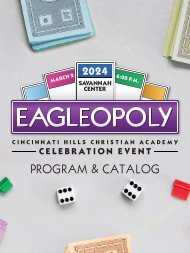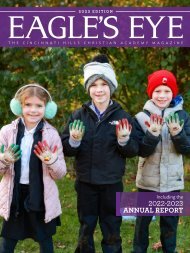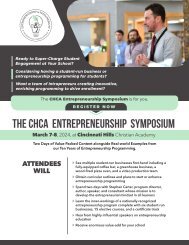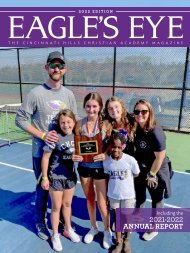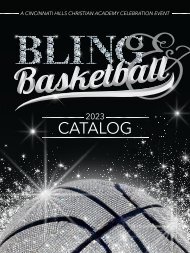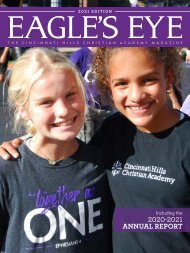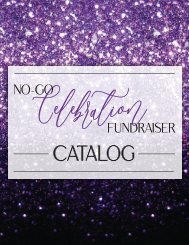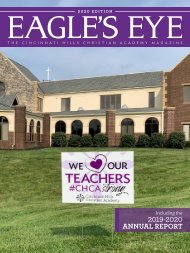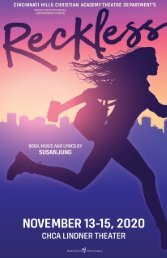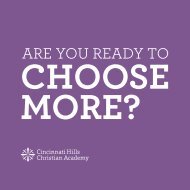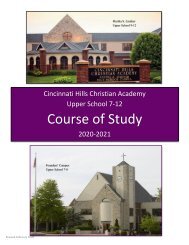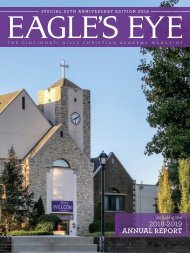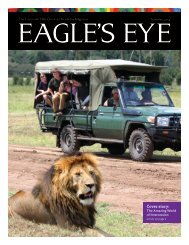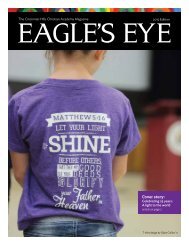Mission, Vision, Competencies, Standards, and Benchmarks
A Statement of Curriculum CINCINNATI HILLS CHRISTIAN ACADEMY Edyth B. Lindner Campus Otto Armleder Memorial Education Center Founders’ Campus Martha S. Lindner Campus 2019 Edition
A Statement of Curriculum
CINCINNATI HILLS CHRISTIAN ACADEMY
Edyth B. Lindner Campus
Otto Armleder Memorial Education Center
Founders’ Campus
Martha S. Lindner Campus
2019 Edition
Create successful ePaper yourself
Turn your PDF publications into a flip-book with our unique Google optimized e-Paper software.
Core Underst<strong>and</strong>ings:<br />
Students will underst<strong>and</strong> that…<br />
‣ Human desires often exceed the limited resources available to them.<br />
‣ Just as resources are scarce, distribution of those resources is unequal. Likewise,<br />
those who labor are usually not the direct beneficiaries of the goods <strong>and</strong> services they<br />
produce.<br />
‣ Having wealth begets influence, but also responsibility for others.<br />
Competency: Media Fluency<br />
Description: Students will work to master…<br />
‣ The use of various forms of media to build an awareness of how events in one part of<br />
the world influence other parts of the world.<br />
Essential Questions:<br />
‣ What is the message of the video/film/song, etc? What points-of-view are we<br />
seeing/hearing?<br />
‣ What is the bias of the medium here? How does that bias affect the reliability of the<br />
message? The credibility of the source?<br />
Core Underst<strong>and</strong>ings:<br />
Students will underst<strong>and</strong> that…<br />
‣ Art, music, film, video are artifacts of the viewpoints of a given time. Identifying pointof-view<br />
<strong>and</strong> bias in media gives us insight into historical contexts.<br />
Competency: Information Fluency<br />
Description: Students will work to master…<br />
‣ Skills in finding, analyzing, <strong>and</strong> interpreting various types of information sources.<br />
Essential Questions:<br />
‣ What kinds of evidence do we have to help us discover "what happened?" What<br />
evidence are we missing? Where can go to we find the missing pieces?<br />
‣ What makes a piece of evidence reliable? What makes it relevant for what we're<br />
studying?<br />
‣ How do we know which sources speak for a given time period?<br />
‣ How do we know which sources are most accurate when authors or scholars<br />
disagree?<br />
Back to Table of Contents




